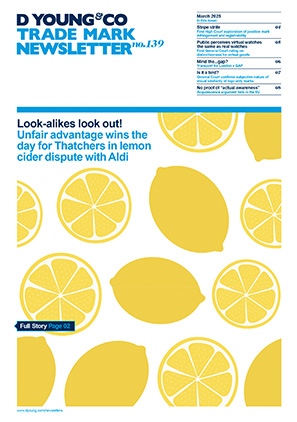HelloFresh successfully opposes rival trade mark “Halal Fresh”
Halal Fresh Ltd applied to register the trade mark shown below left in relation to classes 29 and 31 (vegetables; fresh fruits, nuts, vegetables and herbs). HelloFresh SE successfully opposed the application on the grounds of likelihood of confusion, detriment to reputation/distinctive character and passing off.

Background and grounds of opposition
HelloFresh SE is the proprietor of the following earlier EU trade marks EUTM 13716311 “HelloFresh” in classes 29, 31, 35 and 43; EUTM 15656961 in classes 29, 31, 35 and 43 (shown above middle); and EUTM 16528391 in classes 29, 31, 35 and 43 (shown above right).
Registered rights
Much of the analysis in the opposition decision focused on the word mark “HelloFresh” as this was perceived as the strongest earlier mark on which to rely. According to HelloFresh, use of the contested mark would, without due cause, take unfair advantage of, and/or be detrimental to, the reputation and distinctive character of HelloFresh’s earlier trade mark registrations.
The opposition was also based on a likelihood of confusion, but much of the analysis focused on the reputation claim.
Unregistered rights
Additionally, HelloFresh claimed unregistered rights as a result of use in the UK since February 2015, such that the application should also be refused under section 5(4)(a) of the TMA.
HelloFresh has extensively used the strapline “Dinner is solved”. The inclusion in the contested mark of the strapline “Dinner is sorted” was used as evidence supporting the claim that the applicant intended to free-ride on HelloFresh’s reputation and misrepresent itself as HelloFresh.
Section 5(3) TMA – reputation of earlier trade mark
The respective marks were found to be similar to a medium degree and the respective goods/services were perceived as highly similar.
HelloFresh was found to have a strong reputation amongst the UK public at the relevant date. However, some visual, aural and conceptual differences between the marks were seen as sufficient to avoid any significant level of direct confusion amongst consumers.
On the likelihood of indirect confusion, it was deemed highly likely that HALAL FRESH would be perceived as a new variant of the mark HelloFresh. The reputation of the earlier mark and the degree of similarity between the contested mark and “HelloFresh” was found to be sufficient to create a link between the marks. That is to say, consumers would perceive the contested mark as making a play on the earlier mark in the context of the marketing of foodstuffs comprising, containing, or sold as accompaniments to, halal meat or fish products.
The contested mark was clearly chosen to remind consumers of HelloFresh’s earlier mark. Use of the contested mark would result in this image of the earlier mark transferring to the contested mark. This would allow the contested mark to free-ride on the reputation of the earlier mark without Halal Fresh Ltd incurring the marketing costs that would usually be required to publicise what the brand stands for. The contested mark would thereby derive an economic advantage by attracting more consumers to buy goods offered under it than would be the case without bringing to mind the image of the earlier mark.
Use of the contested mark was found to take advantage of the earlier mark.
Section 5(2)(b) TMA – likelihood of confusion
No likelihood of direct confusion was found, but the UKIPO found that a significant proportion of the relevant public are likely to believe that the contested mark is a brand extension of HelloFresh. Consequently, there was a likelihood of sufficient indirect confusion to uphold HelloFresh’s case under section 5(2)(b).
Section 5(4)(a) TMA – passing off
HelloFresh successfully established that it had goodwill in “HelloFresh” at the relevant date. The resemblance between the marks plus the opponent’s reputation would be sufficient to cause a substantial number of the opponent’s customers to wonder or assume that there is a connection between the users of the marks, for example, HALAL FRESH is a brand extension of HelloFresh. Damage through diversion of sales and loss of control of reputation was established, and the opposition was also successful under section 5(4)(a).
A practical point on costs
Despite having been successful in relation to the opposition, HelloFresh was required to pay Halal Fresh Ltd the sum of £3,850.
This requirement was as a result of HelloFresh not sufficiently limiting the goods/services for which they were claiming reputation, and even included “flowers, office functions, and renting of cooking apparatus.” The opponent was directed to limit the breadth of the reputation claimed at the hearing.
As time was taken up at the hearing to address defects in the opponent’s pleaded case, costs which would normally be due to the opponent were deducted.
Case details at a glance
Jurisdiction: United Kingdom
Decision level: UKIPO Court of Appeal
Parties: Halal Fresh Ltd and Hellofresh SE
Date: 03 August 2021
Citation: O/577/2
